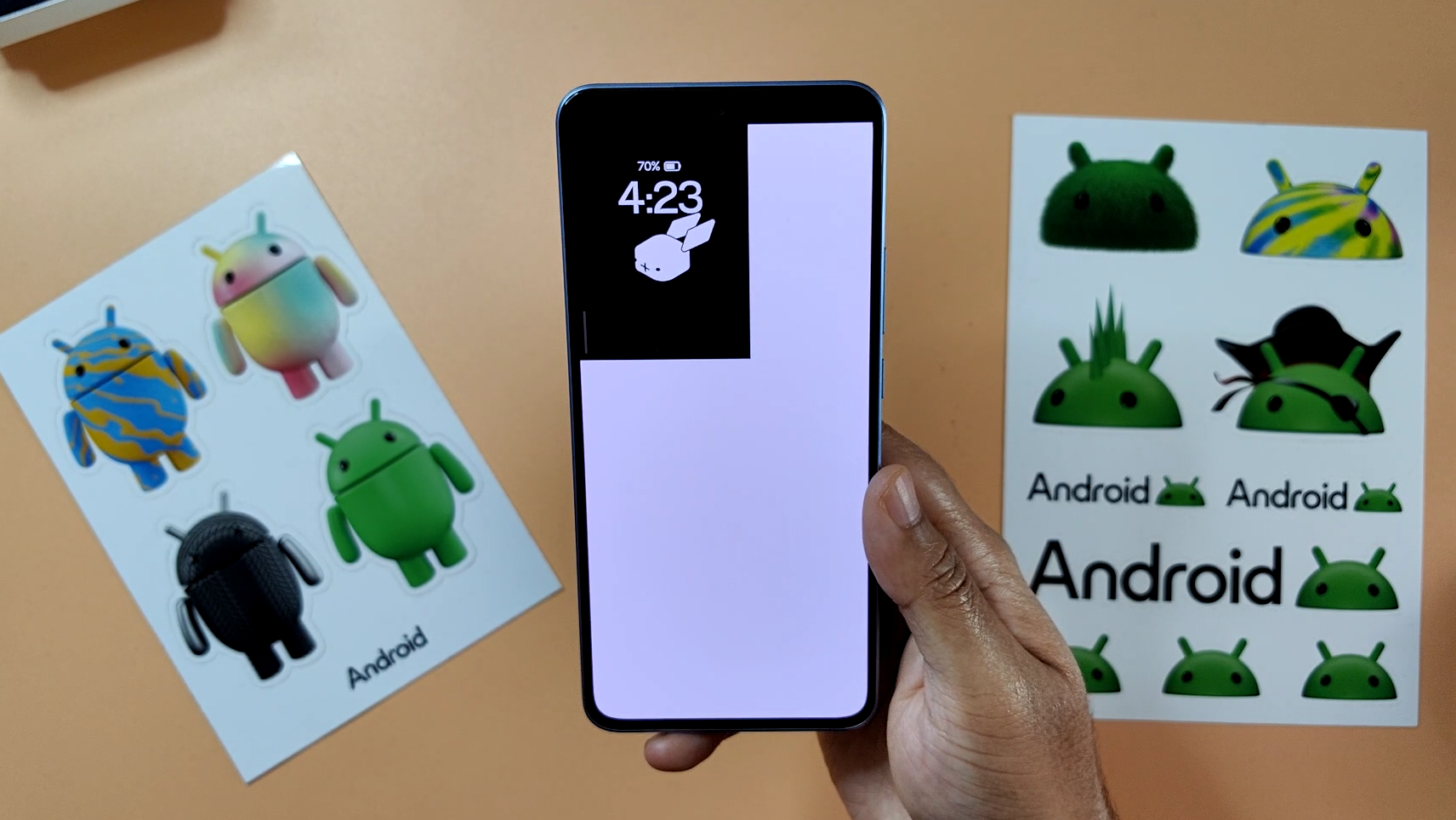- Rabbit R1, AI gadget, runs on Android app, not requiring “very bespoke AOSP” firmware as claimed by Rabbit.
- Rabbit R1 launcher app can run on existing Android phones, not needing system-level permissions for core functionality.
- Rabbit R1 firmware analysis shows minimal modifications to standard AOSP, contradicting claims of custom hardware necessity by Rabbit.
No, you don’t need a ‘very bespoke AOSP’ to turn your phone into a Rabbit R1
I just fucking need to get the APK from a goddman reliable source and I only know APKMirror
The article says that you need a custom launcher to establish a connection to their cloud service, so the apk only won’t do it either way. But give it a few days and someone will have rigged up a full package, no doubt. Then you’ve probably got 6-8 weeks to use the service before they kick the bucket and shut down forever…
The APK is called “R1 Launcher”…
They’ve already proved it works from an Android phone.
I’ve no skin in the game related to this device or software. I simply don’t care. However, in terms of an AI assistant, I am curious if there is anything on the market, including this APK device, that is worth using. For someone who is privacy centric, advert avoidant, and security focused… does (or even can) such an app/tool exist?
You won’t like anything on offer currently except for that which is entirely self hosted.
Technically, every Android phone uses a “very bespoke AOSP”, because the Android kernel is customized for the hardware of every single phone model, which can include things like hardware drivers and carrier services.
This is the reason that there is no universal Android ROM that works across every Android phone, unlike Windows or normal GNU/Linux distributions.
What about custom ROMs like Lineage? The only thing holding it back from working on every phone is that many phones have blocks to prevent installing a custom ROM in the first place. Could be just like windows in that it has every driver for every piece of hardware in the package, just bloating it unnecessarily.
The manufacturer has to release the phone’s kernel source code before any custom ROM development can happen for the phone most of the time for that reason.
There is a reason that GrapheneOS only works on a couple of Pixel phones.
Could be just like windows in that it has every driver for every piece of hardware in the package, just bloating it unnecessarily.
Google specifically designed the Android kernel so that the driver are excluded, unlike the normal Linux or Windows kernel, because, long story short, Qualcomm did not want it to happen.
Every device had it’s own device tree and kernel with custom driver’s, binary blinds, and system software. All of it runs beside the closed source modern os
I’m not entirely sure because I’m not very knowledgeable about CPUs, but it seems this is largely a problem with ARM architectures and their lack of standardization, isn’t it?
There’s nothing like uefi between the os and the hardware
I don’t really care for this product. It’s another unnecessary AI assistant. What I’m struggling to understand is why it matters which platform it’s been built on. What difference would it make if they wrote an entire OS from scratch only for this device instead of using Android, if the end product would be the same?
It just drives the point home that it should have, and could have been an app on your phone. If they hadn’t sold this as some sort of revolutionary new product and instead were honest to themselves and us about what it was this would be a different story.
Just like all tech bs it’s just a bunch of lies to make initial sales that they never follow through with.
But maybe people would like a standalone device, without the distraction a regular smartphone brings.
I’m not defending this thing as AI in its current state is near useless, bar some niche applications. But the decision to make it a standalone device isn’t really controversial in my opinion.
I think that you’re in the minority with that opinion then. I don’t want another thing to carry around. And I don’t see how this would be less of a distraction seeing as it doesn’t do anything useful. To me that makes it more of a distraction. If you want to not look at your screen to perform tasks that’s already an option with your phone using Siri or Google’s assistant.
Because the main criticism of this class of products is “why in the fuck would I need a device for this? my phone already has a data plan, a microphone, and a camera. Make it an app” and the response is some vague “oh well it’s so advanced (it’s not.) it couldn’t possibly run on a phone”.
The vision is that once TPUs become affordable enough to run these models on-device, you would need a device that has such a TPU and you would go to them. But this is completely overlooking the fact that all snapdragons and the like would also have the same TPUs integrated, and also we’re not there yet, so for as long as you need to send the query to openAI’s API, why is this not an app?
Not sure what the surprise is. It is a device that needs you to sign into an account and have an internet connection. Ie it is just a dumb terminal. Kind of like how Alexa speakers are useless without an internet connection. All the processing is done on servers.
Even if it was not an android app, you probably could have made a clone of it since you are basically interacting with a web api.
In their defence the device has the advantage of giving you instant access to their ai through the touch of a button whilst on phones you would need to physically open the app as the “assistant” functionality is already reserved to Siri, Bixby, etc.EDIT: I wasn’t aware you can change assistants.Personally I like the concept if the processing was done within the device, but considering you need monster machines to run llms I guess we are least decades away from that reality.
Well you can change your ‘assistant’ in Android so not even that.
This is one of those shitty products that you can see being shitty from a mile away, yet all the coverage and discussion around it gives it a life it otherwise wouldn’t have had.
It’s probably only because it’s co-designed by Teenage Engineering. Usually their devices get quite the fuzz.
They have so much quality audio equipment, it’s understandable why people would stump for this because of the Teenage Engineering (TE) involvement alone.
Funnily enough, despite being a TE enthusiast, this is my first time hearing that they had anything to do with this joke of a product.
…which kind of does make me sort look at TE like… wtf were you thinking? …and sort of definitely makes me question future endeavors from TE. Because this thing is a fucking joke.
Imo TE has always been a shady company in terms of business decisions. I still for the life of me cannot understand why the OP-1 is over 2 grand. It’s a music making machine with a cruddy keybed that’s not even volocity sensitive that’s also intentionally limited in terms of how you can use it.
Now, don’t get me wrong. I definitely think it’s a cool little device capable of doing cool things. But there’s no way in hell this tiny thing is worth 2k. You can spend 1/4th of the price on something like an elektron Digitakt or a polyend play and get very similar functionality in an arguably better more robust package.
TE are a boutique company that intentionally releases overpriced products so they can have this reputation of being a “premium” company. Just like Apple. If it weren’t for their pocket operators (which are arguably closer to being toys than actual audio equipment) I wouldn’t think they’d have anything remotely worth buying.
Side note: the playdate looks adorable. But, similarly to the OP-1, is very overpriced for what it does.
Hopes were set unreasonably high because the hardware designer has a great reputation. And the hardware seems well made (for the price) and certainly tries out some interesting new ideas. I love how the camera is physically blocked while not in use for example.
The software team has let this product down. Not surprising, but dissapointing.
The hardware team made a device that just couldn’t be turned into a good product no matter what the software team did. None of those AI-in-a-box devices are good products because they simply don’t have a reason to exist. Everything they can do, phones can do. If you have a phone, you don’t need one of those AI boxes, however if you buy one of those AI assistant things, you’ll still need a phone (which, again, can completely replace the AI box with no loss in functionality).












